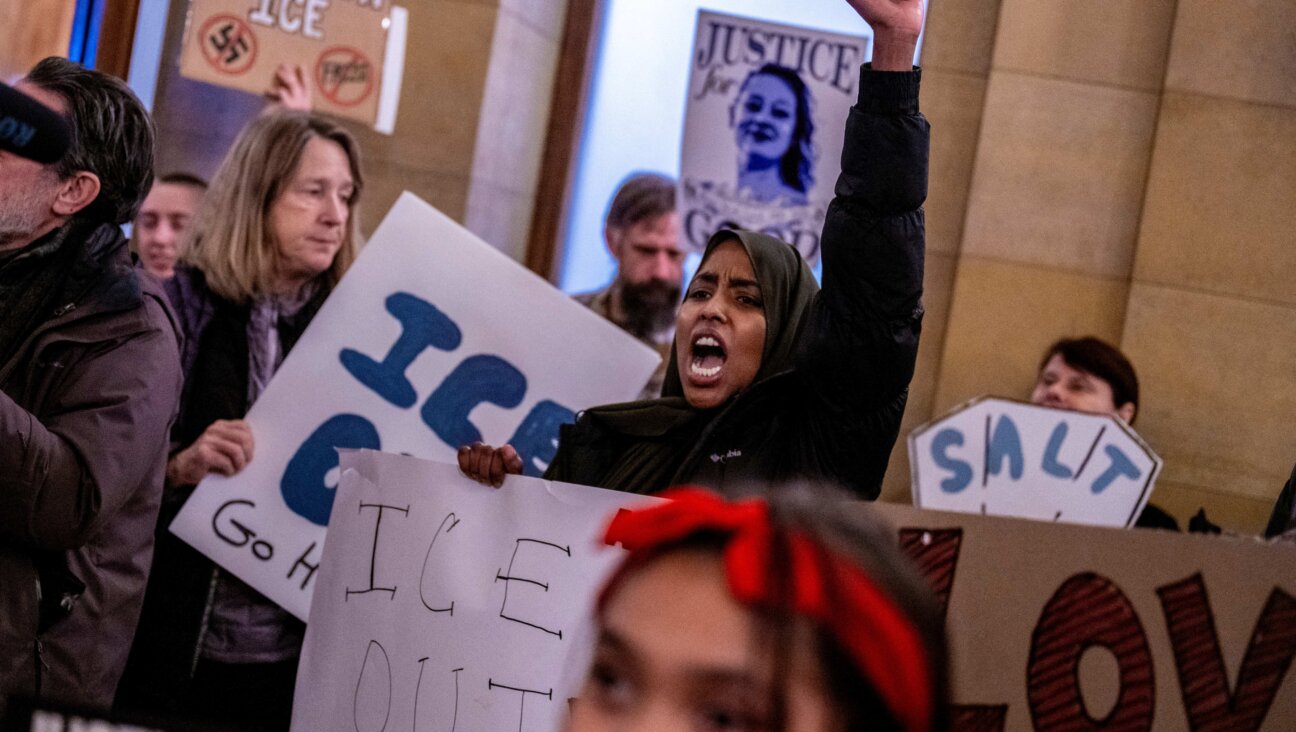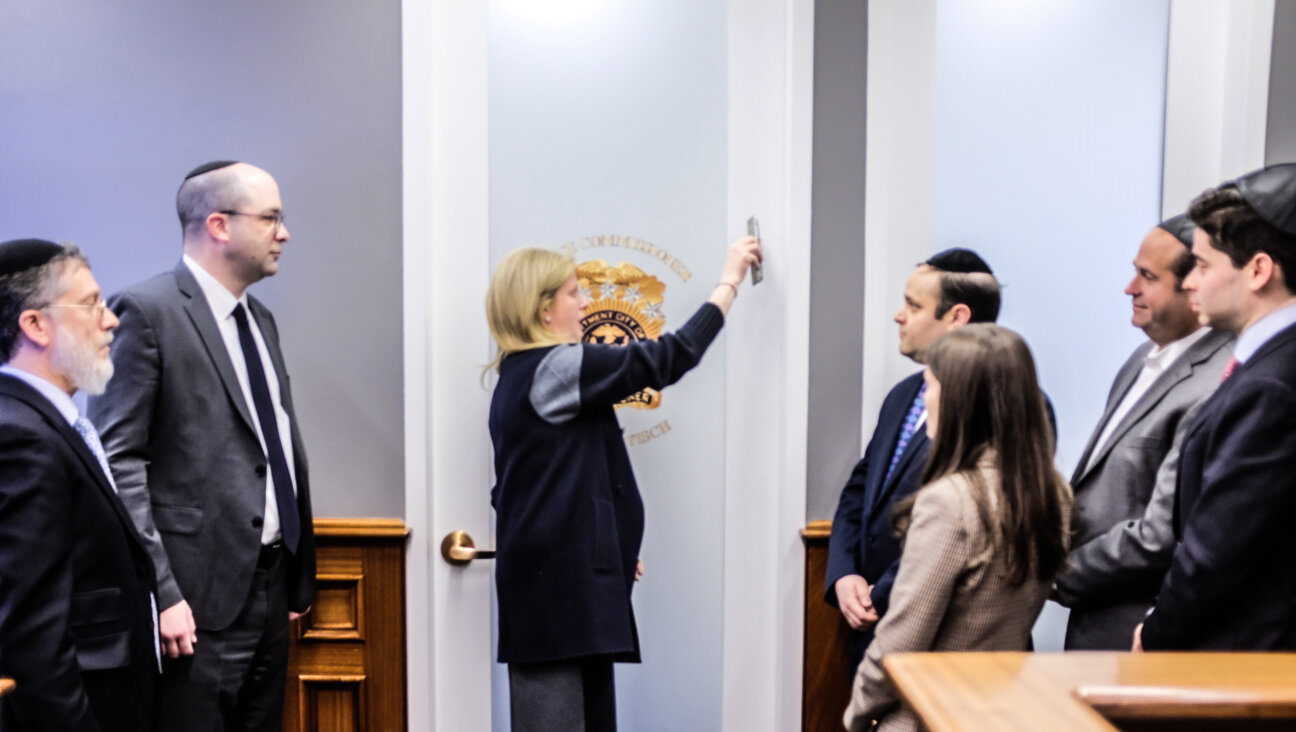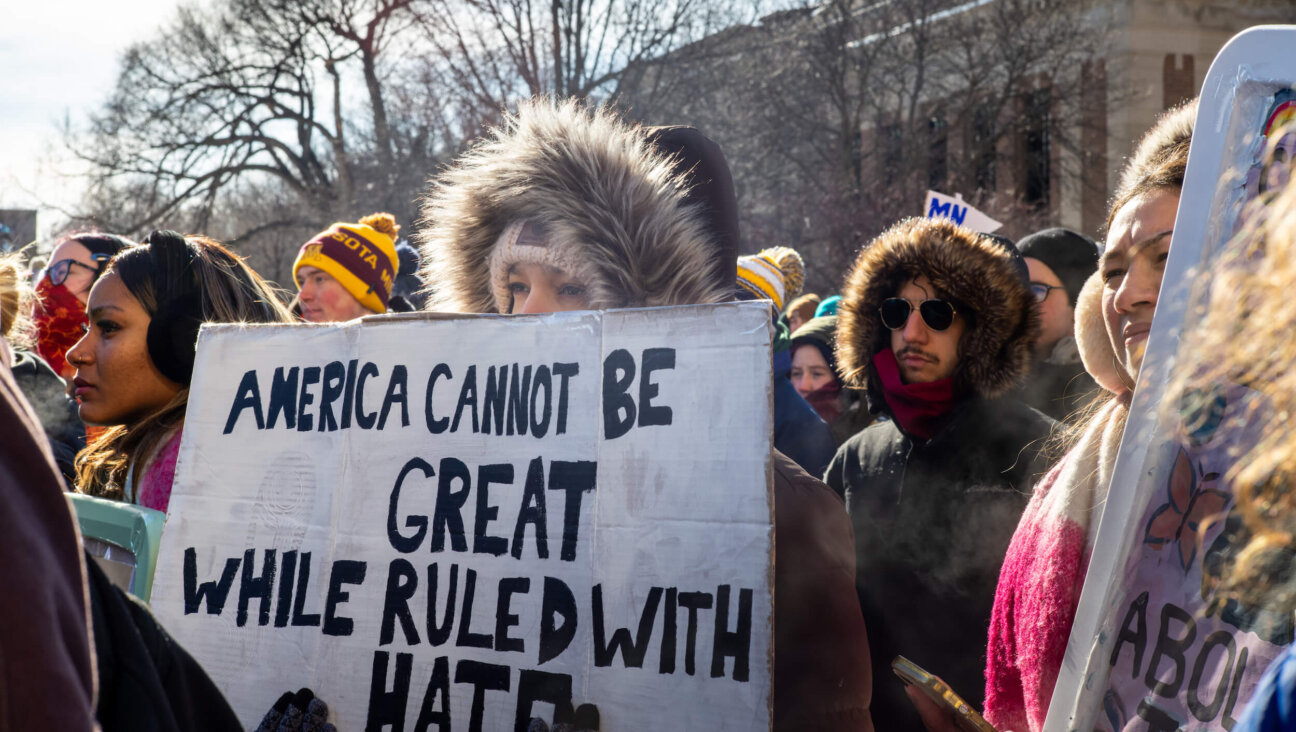Pollard Gets Another Day in Court, But No Ruling Is Announced
WASHINGTON — It did not result in any decision, but just getting another day in court was a victory of sorts for Jonathan Pollard.
Sentenced to life imprisonment in 1987 for spying for Israel, Pollard had tried to get a new hearing for years, arguing that his former counsel was inept and that the government broke a plea-bargain agreement when it convinced the judge at his trial to give him a life-sentence.
On Tuesday, Pollard appeared in U.S. District Court in Washington, the first time he has been seen in public since his sentencing 16 years ago.
A packed courtroom heard Pollard’s pro bono defense attorneys demand what they said was justice for the former Navy analyst, who confessed to passing military secrets to Israel.
Over and over again, attorney Jacques Semmelman argued that Pollard’s original attorney, Richard Hibey, had been guilty of ineffective assistance of counsel, thereby denying Pollard his right to a fair trial. Pollard already has served longer than any other spy convicted of a similar crime.
Semmelman repeatedly reminded Judge Thomas Hogan that Hibey, without explanation, never objected to the government’s breach of its written plea agreement not to ask for a life-sentence; failed to ask for an evidentiary hearing regarding a last-minute, secret declaration by then-defense secretary Caspar Weinberger outlining Pollard’s allegedly extensive damage to American interests, and failed to file the routine notice of appeal required within 10 days of the court proceedings.
Hibey has declined to discuss the case. Weinberger has admitted that his sworn declaration, in many ways the basis for Pollard’s life sentence, “was made far bigger than its actual importance.”
Hogan did not rule on the request for a reduction of Pollard’s sentence or on his attorneys’ request to be able to see the secret documents.
Wearing green leisure clothes and a beige knit yarmulke, Pollard was brought to the courtroom Tuesday without shackles and took a seat between Semmelman and his lead attorney, Eliot Lauer. His lawyers were backed up by two hired public relations managers, a contingent of rabbis led by former Israeli chief rabbi Mordechai Eliyahu, Pollard’s wife Esther and Rep. Anthony Weiner, a New York Democrat.
Lauer appealed to the judge to allow Pollard’s attorneys access to the secret documents behind the Weinberger declaration, which the government maintains are too secret for defense counsel to examine.
Hogan asked prosecutors several times whether the information from more than a decade and a half ago is “stale” or “no longer has its status” as top secret.
In an interview, Weiner said he was the only member of Congress to actually examine the secret documents that have been denied to Pollard’s current attorneys. He examined them in 1999 in the presence of security officers in the office of the House of Representatives Intelligence Committee, Weiner said.
Weiner declined to characterize the documents or divulge their contents. But based on what he read, he said, he disagrees with both the public and secret portions of the Weinberger declaration.
“No case in American history has been treated so harshly,” Weiner said. Pollard “should have never been sentenced to life.”
That view was seconded by Jewish communal leaders.
“It’s time for the president to release Pollard on humanitarian grounds,” said Seymour Reich, a former chairman of the Conference of Presidents of Major American Jewish Organizations who was in the courtroom representing the conference’s Pollard committee. “Eighteen years is enough time.”
Rabbi Abraham Cooper, the associate dean of the Simon Wiesenthal Center, hailed the hearing as “a major achievement” for Pollard’s attorneys.
He added that he saw “great significance in the fact that the judge summoned Pollard up from Butner” — the North Carolina prison where he is being held — “to attend his hearing.”
Former Israeli chief rabbi Eliyahu came from Israel for the hearing.
“I came here all the way from Tel Aviv to see justice done for Jonathan Pollard and bring Jonathan back to Jerusalem,” he said in an interview.
Eliyahu led a prayer session in the pouring rain outside the courthouse after the hearing.
Asked if he thought Pollard would be released, Eliyahu looked at the sky and said, “Anything can happen.”
A spokesman for Prime Minister Sharon, Ra’anan Gissin, declined to comment on the hearing, but he told The Associated Press that Israel was still working for Pollard’s release.
“We are using all our efforts to get him released,” Gissin said.
Government lawyers said they were under strict orders from the U.S. Attorney’s Office not to comment on Tuesday’s proceedings.














